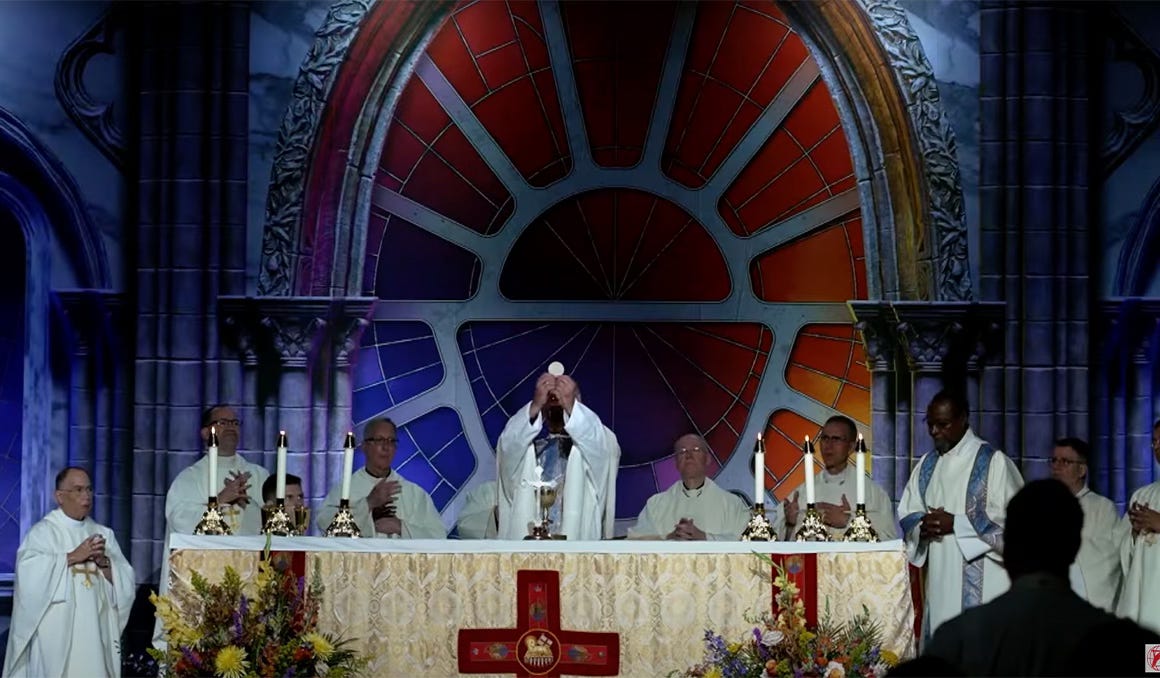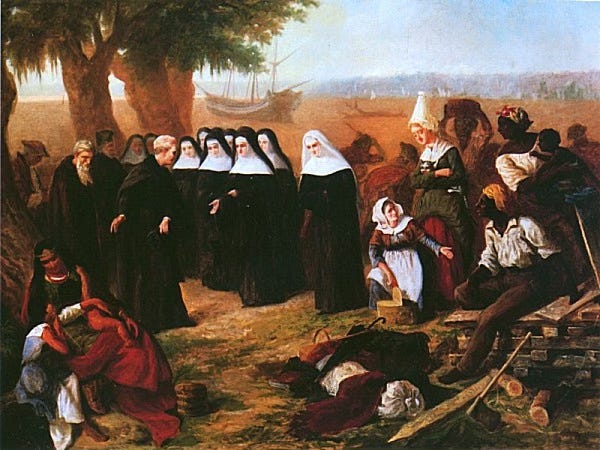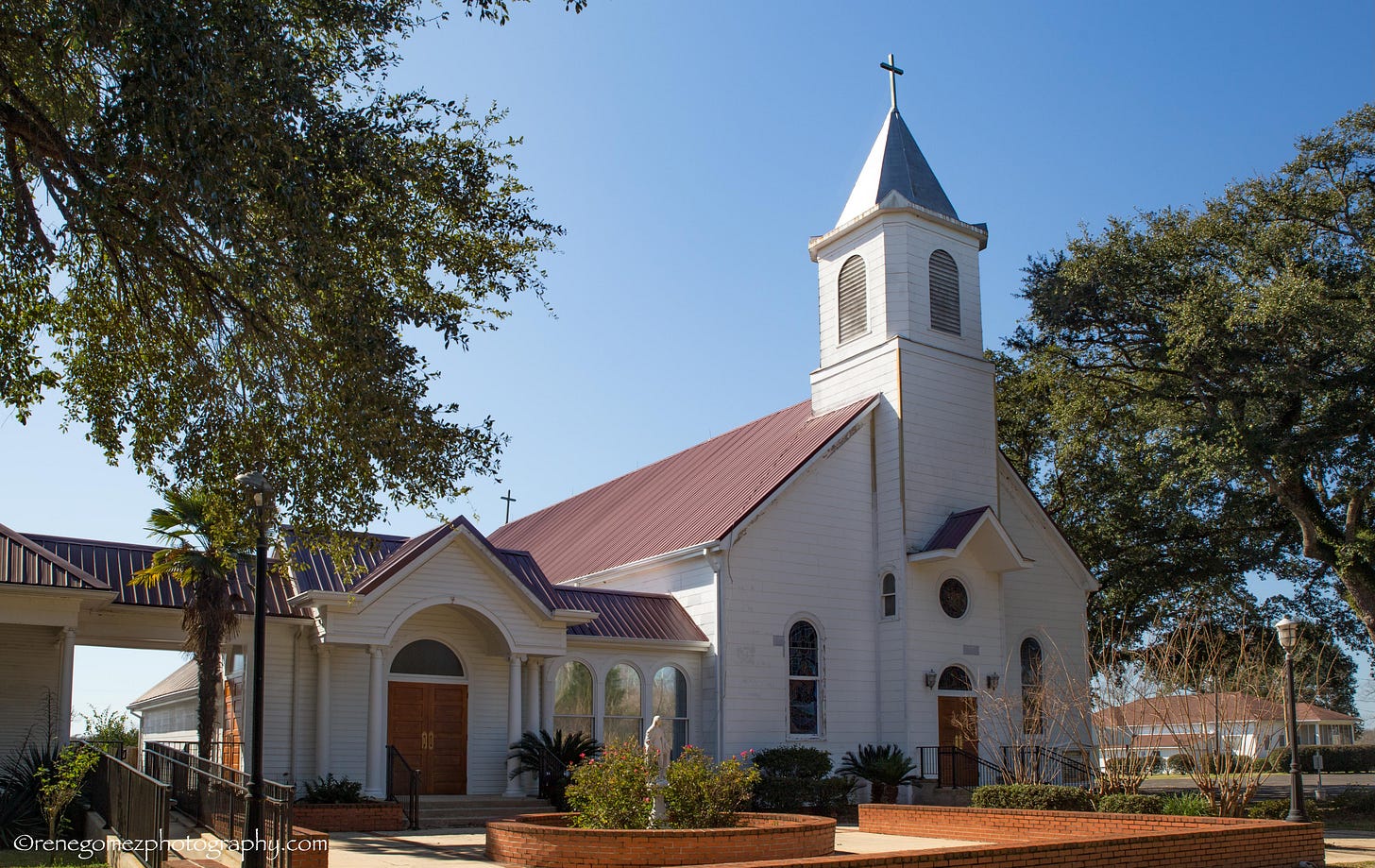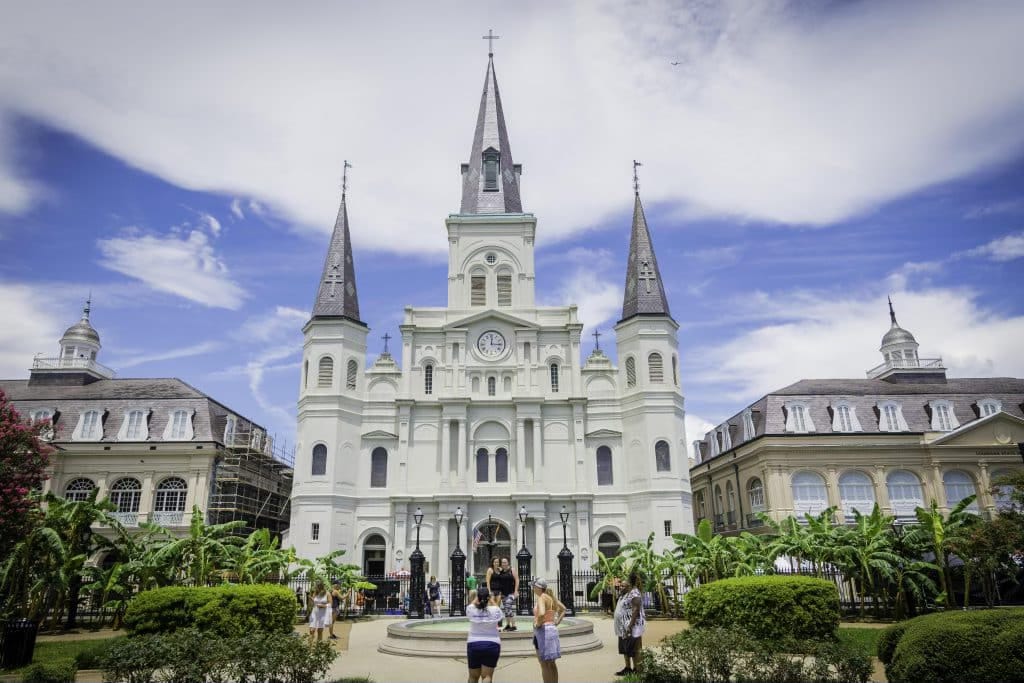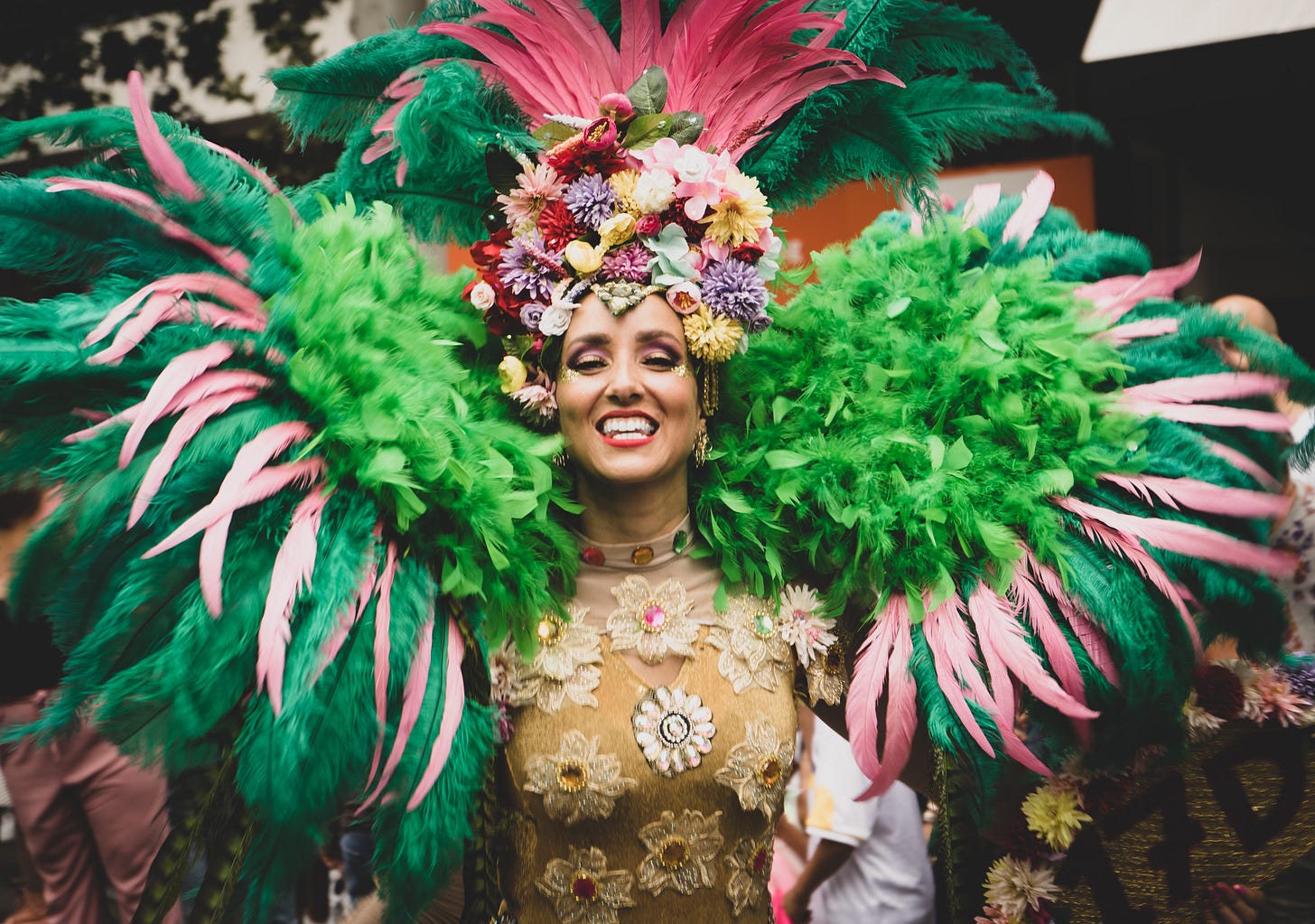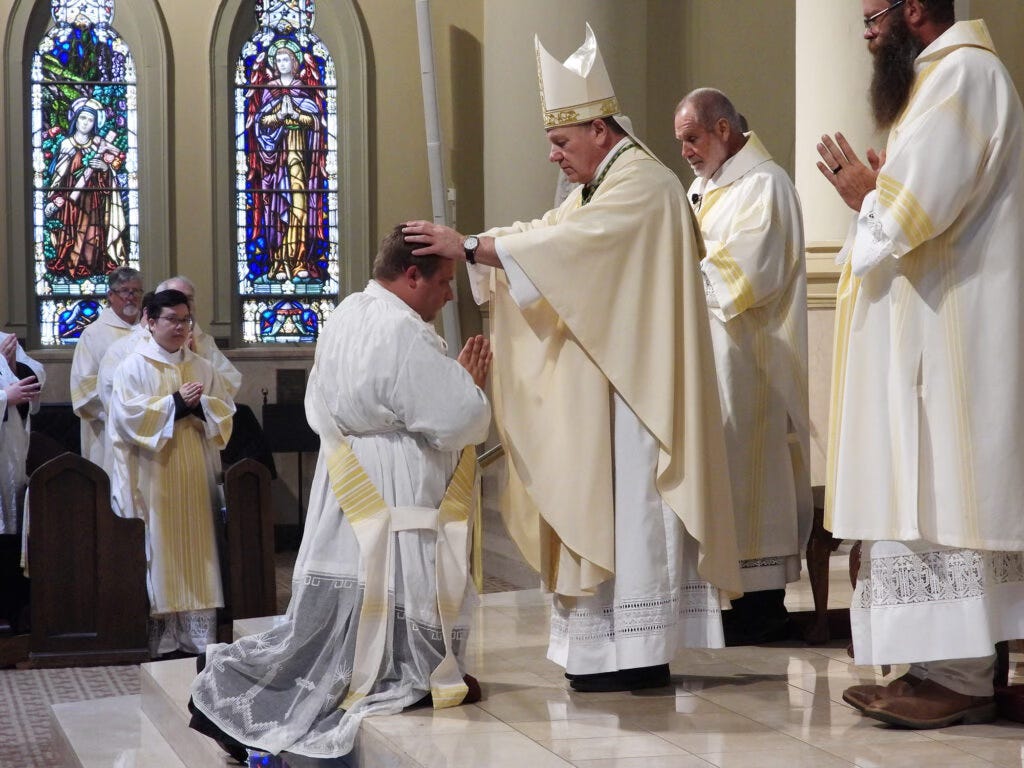The Role of Catholicism in Louisiana’s History and Culture
From grand cathedrals to lively festivals, Catholicism is interwoven into the very fabric of Louisiana’s history and culture. Unlike any other state in America, Louisiana's deep roots in Catholic tradition have shaped its identity, customs, and way of life. Brought by French and Spanish colonizers, Catholicism continues to influence everything from architecture and music to holidays and cuisine. In this post, we’ll explore the enduring role of Catholicism in Louisiana’s past and present, celebrating the people, places, and traditions that make it so unique.
Catholicism in Louisiana’s Beginnings
French and Spanish Influence
The Catholic Church arrived in Louisiana in the 17th century with French explorers, particularly when René- Robert Cavelier, Sieur de La Salle, claimed the Mississippi River Valley for France in 1682. By 1718, New Orleans was founded, and the Catholic faith was established as the colony's official religion.
With France’s influence came Catholic clergy, who built churches, baptized settlers, and began missionary work among Native Americans. Later, when Spain acquired Louisiana in 1763, Catholicism deepened its roots. Under Spanish governance, the church thrived, with significant investments in parishes and education.
By the early 19th century, Louisiana transitioned to U.S. control through the Louisiana Purchase (1803), yet its Catholic identity remained strong, influencing generations to come.
The Ursuline Sisters: Education and Charity
One of the most pivotal moments in Louisiana’s Catholic history was the arrival of the Ursuline Sisters in 1727. Sent from France to New Orleans, their mission was to establish a foundation of education, healthcare, and charity.
First Girls' School in North America: The Ursulines founded the first Catholic school for girls, offering education to both wealthy settlers and the daughters of enslaved people.
Healthcare and Orphan Care: The sisters cared for orphans and the sick, earning a reputation as pioneers of social work in the region. During times of epidemics like yellow fever, the nuns played a critical role in providing medical care.
Their work laid the groundwork for Catholic education and social services in Louisiana—a legacy that continues today through Catholic schools and charities across the state.
Did you know? The Ursuline Convent in New Orleans is the oldest surviving building in the Mississippi Valley and a testament to the enduring legacy of the Catholic Church.
Catholicism and Creole Identity
Blending Cultures and Faith
The Catholic faith brought to Louisiana by European settlers blended with the traditions of enslaved Africans and Native Americans, giving birth to what we now call Creole Catholicism.
Enslaved Africans incorporated elements of their spiritual traditions into Catholic practices, resulting in unique expressions of faith.
Creole Catholicism became central to the culture, as seen in celebrations, music, and family life.
St. Augustine Church: A Creole Landmark
Founded in 1841 in the Treme neighborhood of New Orleans, St. Augustine Church is one of the oldest Black Catholic churches in the U.S. It became a hub for Creole Catholics and remains a symbol of faith and cultural pride.
Catholic Architecture in Louisiana
St. Louis Cathedral: An Icon of New Orleans
The St. Louis Cathedral in the French Quarter is one of Louisiana’s most recognized landmarks and the oldest continuously active Roman Catholic cathedral in the United States. Originally built in 1727, it has undergone multiple renovations and remains a central piece of Louisiana’s Catholic heritage.
Visitors are struck by its stunning architecture, with influences of French and Spanish design, from its spires to its ornate interior.
Other Notable Catholic Churches
St. Joseph’s Co-Cathedral in Thibodaux: A beautiful example of Gothic Revival architecture.
St. Mary’s Assumption Church in New Orleans: Known for its breathtaking stained glass windows.
These churches not only serve as places of worship but also as cultural landmarks that draw visitors from around the world.
Catholicism’s Influence on Louisiana Festivals
Mardi Gras: A Catholic Tradition
When most people think of Louisiana, Mardi Gras comes to mind. This world-famous celebration has its roots in Catholic tradition as the final feast before Lent, a 40-day period of fasting and penance leading up to Easter.
King Cake: A staple of Mardi Gras, the King Cake honors the Feast of the Epiphany, celebrating the visit of the Three Kings to the baby Jesus.
Parades and Balls: Mardi Gras krewes and their elaborate parades reflect Louisiana’s cultural blend of faith, fun, and community.
St. Joseph’s Day
This feast day, celebrated on March 19th, was brought to Louisiana by Italian Catholics in the 19th century. The highlight is the St. Joseph Altars, lavish displays of food and symbols honoring the saint for his intercession during times of hardship.
Many families open their homes to the community, reflecting the Catholic values of generosity and hospitality.
Related Tradition: New Orleans hosts a unique celebration where locals of Italian and Creole descent parade and share meals in honor of St. Joseph.
All Saints’ Day: Honoring the Dead
On November 1st, Catholic families across Louisiana visit cemeteries to honor deceased loved ones. Cemeteries like St. Louis Cemetery No. 1 in New Orleans are filled with visitors, fresh flowers, and candles. This tradition connects families across generations and preserves Louisiana’s Catholic respect for ancestry and remembrance.
Catholicism’s Impact on Louisiana Cuisine
Seafood Fridays and Lenten Traditions
Catholicism’s emphasis on abstaining from meat during Lent shaped Louisiana’s culinary scene. Fish and seafood became staples during this season, influencing popular dishes like:
Crawfish Etouffée
Seafood Gumbo
Fried Catfish
These dishes are now part of Louisiana’s identity, enjoyed year-round by residents and visitors alike.
King Cake: More Than Dessert
The King Cake’s Catholic origins have turned it into a symbol of Louisiana’s festive spirit. Hidden within the cake is a small plastic baby, symbolizing the Christ Child. The person who finds the baby is responsible for hosting the next King Cake party—a tradition that brings people together.
Catholicism in Modern-Day Louisiana
Education and Social Services
Catholic schools remain a pillar of Louisiana’s education system, serving thousands of students across the state. Institutions like Jesuit High School and Loyola University New Orleans uphold the Catholic commitment to academic excellence and service.
Catholic charities play an equally significant role in supporting Louisiana communities, providing services like:
Disaster relief
Housing assistance
Food banks
Catholic Tourism
Louisiana’s Catholic heritage attracts tourists seeking history, architecture, and faith-based experiences. Popular stops include:
The Old Ursuline Convent
St. Louis Cathedral
Pilgrimages to historic churches in Cajun Country
These landmarks connect visitors to the state’s Catholic past while celebrating its vibrant culture.
Conclusion: Celebrating Louisiana’s Catholic Legacy
Catholicism has shaped Louisiana’s history, identity, and culture in profound ways. From the first settlers to modern-day festivals, the Catholic faith remains a cornerstone of Louisiana life. Its influence is seen in the grand architecture of historic cathedrals, the lively traditions of Mardi Gras, and the warmth of Creole hospitality.
As you explore Louisiana, whether you’re enjoying a King Cake during Mardi Gras or walking through the doors of St. Louis Cathedral, you’re experiencing the enduring legacy of Catholicism.
Share Your Connection
What’s your favorite Catholic tradition or landmark in Louisiana? Have you attended a St. Joseph’s Day celebration or visited a historic church? Share your thoughts in the comments below!
Don’t forget to subscribe to our blog for more stories celebrating the people, places, and traditions that make Louisiana great. If you enjoyed this post, share it with your friends and family to spread the beauty of Louisiana’s rich Catholic heritage!
Subscribe. Share. Connect. Louisiana’s stories are waiting to be told.




